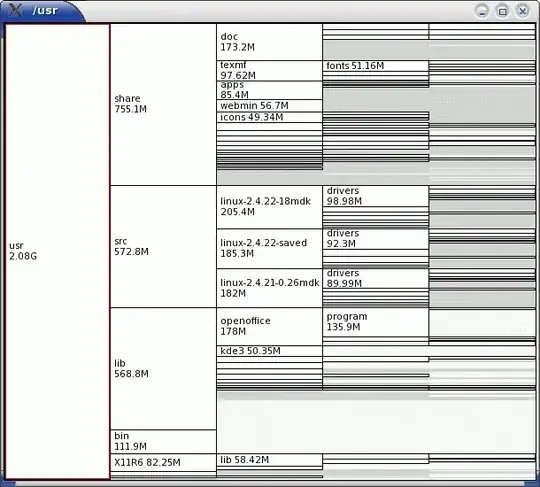I am using git-annex, an extension to the DVCS git, which is designed for handling large files. It makes heavy use of symlinks. The actual large files are moved to the .git/annex directory and the original files are symlinked to there.
I am running out of disk space, and need to clear up, and see what's using all my space. Usually I'd use a disk usage tool like ncdu, Baobab or Filelight. However they treat the symlink as essentially empty, and only count the file that it is pointing to as using any space. Which means when I use git-annex, it shows no space used in the main directories and lots of space used in the .git/annex directory. This is not helpful.
Is there any (graphical or ncurses) based disk usage programme for linux (apt-get installable would be easie that is capable (through options or not) of counting a symlink as using up the space that the original file uses up? Many have options for different behaviour for hard links, so makes sense that some should h
(I know counting symlinks as using space has flaws, like counting the space space twice, broken symlinks, etc. But that's OK for my purposes)
